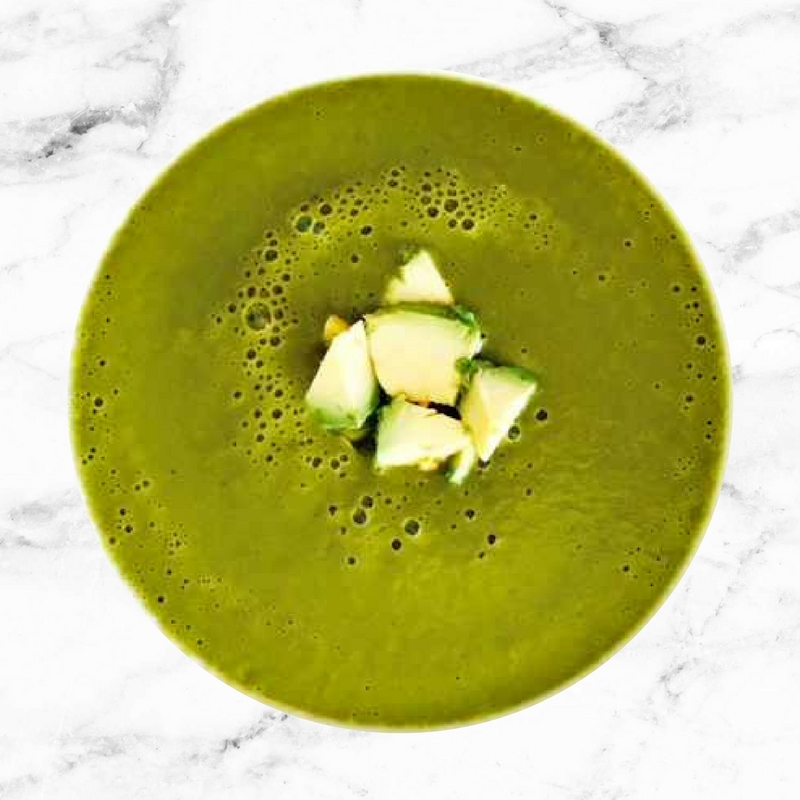The gut-brain connection
In this blog, I’ll unpack some of the exciting new research about the link between gut health, mood, and stress. We’ll explore the importance of your friendly resident gut microbes, probiotic foods, and supplements, to improve your mood and energy.
And, just because I love you, I’ve included simple recipes to keep your gut and taste buds happy.
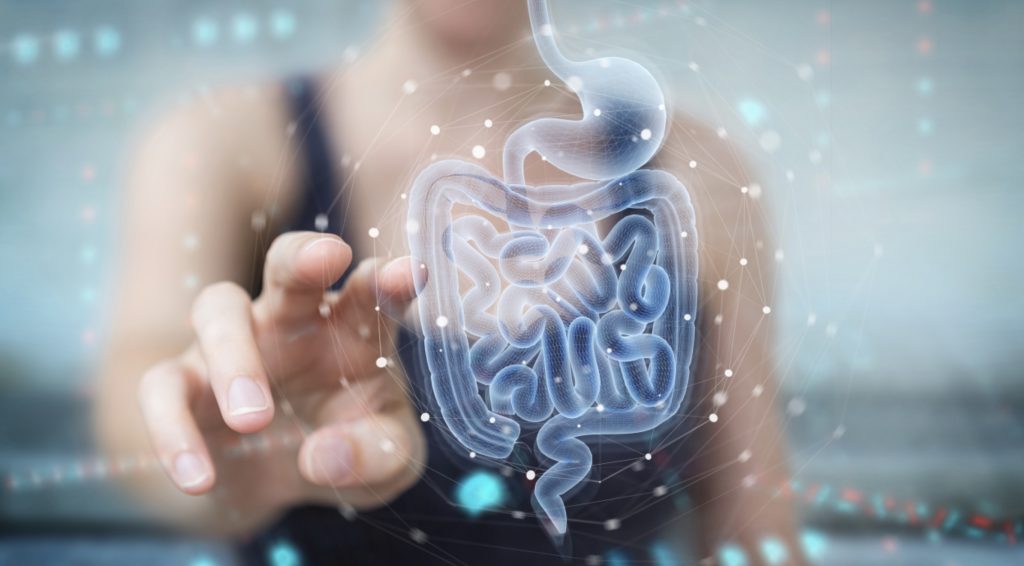
GUT MICROBES
There are trillions of microbes that happily live in our gut. These friendly microbes do more than help us digest foods, make vitamins, and protect us from the not-so-friendly microbes – they have mood-boosting and stress-busting functions too!
Our microbiome is a hotbed of research right now and we’re finding out more about gut bacteria’s awesome health and mood/stress benefits every day. And, while the research is just beginning to decipher the many gut microbe-brain connections, it’s an important topic that I couldn’t wait to share it with you!
Did you know that there are more microbes inside our gut, than all of the human cells that make us? That’s right, we’re more than half microbe! So, how could they NOT impact our health?”
GUT MICROBES AND PROBIOTICS
The microbes that live in our guts are known as our “gut microbiota”. The microbes that we can ingest are known as “probiotics”.
“Probiotics” are live organisms that you can eat, drink, or take as a supplement. They turn milk into yogurt, and cabbage into sauerkraut; and they are great for both your gut health and mental health.
Special probiotics that have mental health benefits are called “psychobiotics,” (psycho = mental health, and biotics = live). They are live organisms that can benefit our psyche.
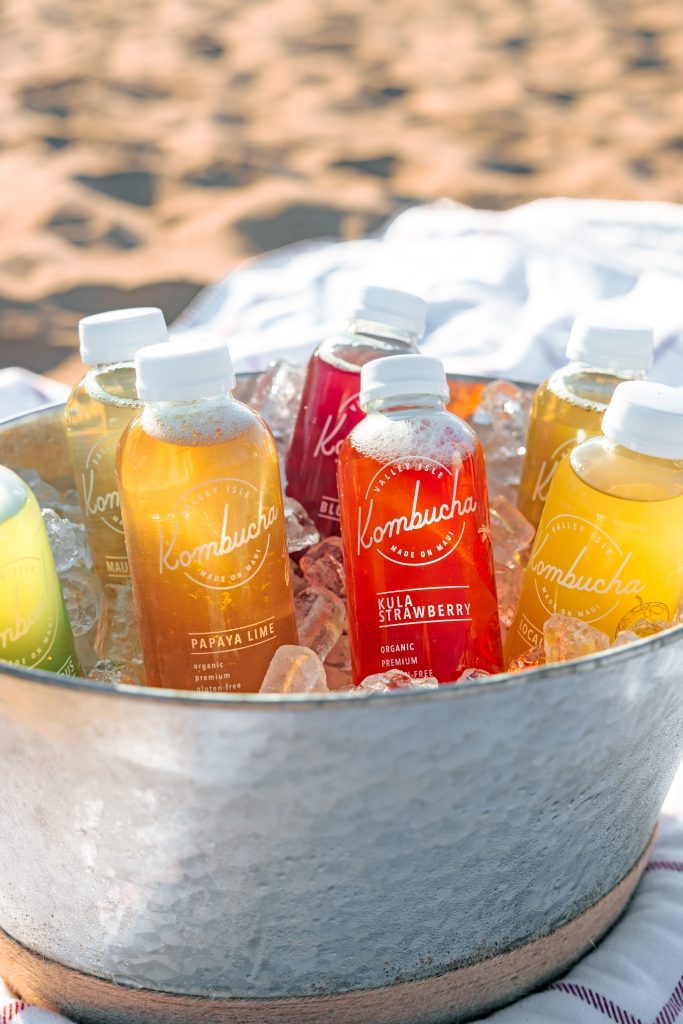
PROBIOTIC-RICH FOODS AND SUPPLEMENTS
Probiotics can be found in yogurt, sauerkraut (and other fermented veggies), miso, tempeh, and kimchi. You can drink them in kefir or kombucha.
Be sure to choose unpasteurized ones that will be refrigerated in your local grocer. Unpasteurized foods are not recommend if you are pregnant or have a compromised immune system, so please check with your healthcare provider.
Of course, there are a number of probiotic supplements available too. Check with your healthcare provider to identify which one is best for you.
Generally, we look for one that’s refrigerated and has at least 10 billion active cultures. I also suggest you look for one that has been “third party tested,” which means someone outside the company has tested it and says it’s a quality product.
Also, be sure to read the label before taking any supplements. The probiotics with the most research are of the Bifidobacterium and Lactobacillus types. There’s still not enough known about the psychobiotic effects to make specific mood-boosting recommendations yet.
SIMPLE, PROBIOTIC-RICH RECIPES
Try some of these delicious gut healthy recipes.
Confetti Vegetable Salad with Miso Dressing
Cauliflower Olive Salad with Yogurt
Strawberry Almond Chia Pudding
.
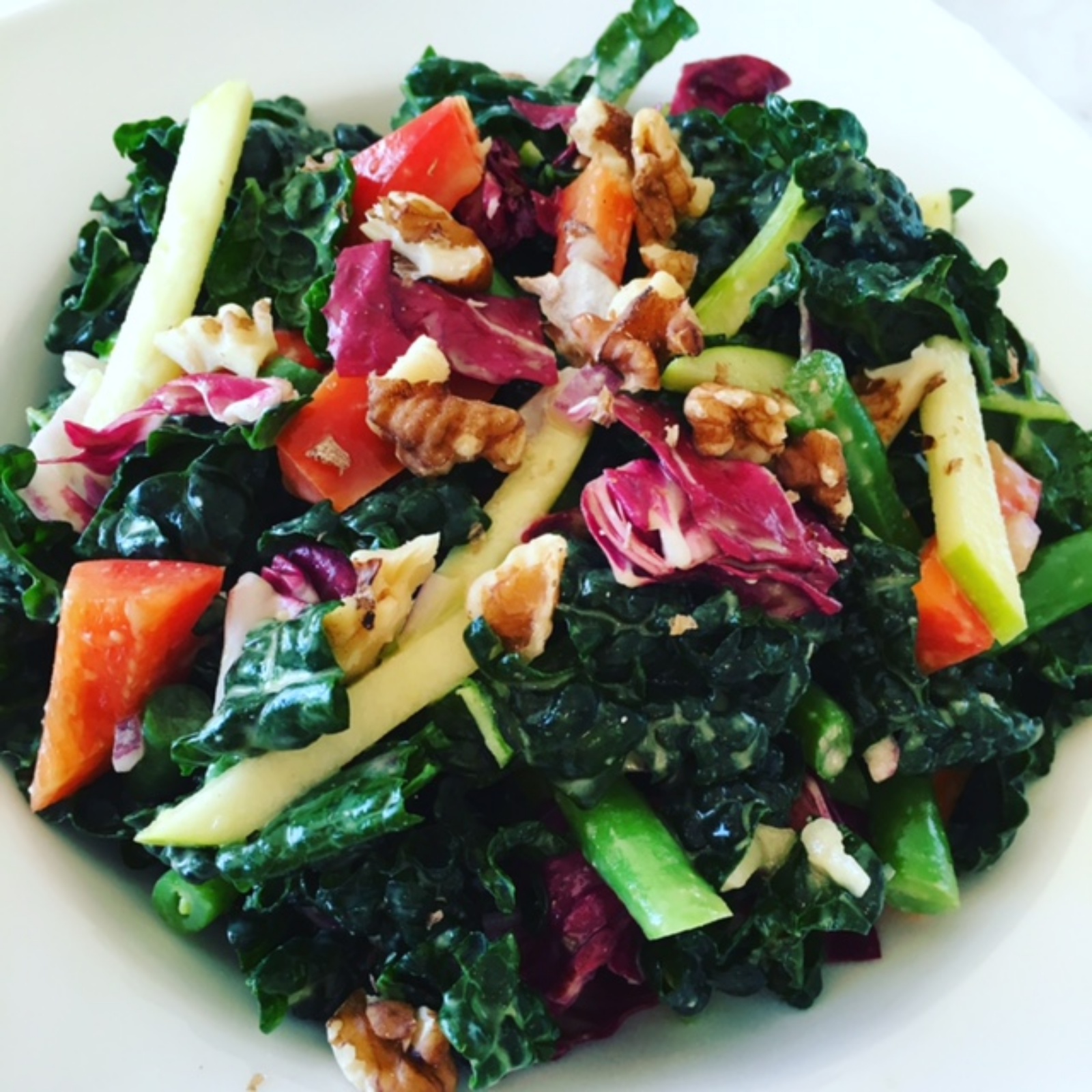
GUT-BRAIN CONNECTION
It may not seem obvious or intuitive, but your body is interconnected in a myriad of surprising ways. New research is focusing on the “microbiota-gut-brain axis.” It’s the very complex connection between your gut, its microbes, and your brain. This new field has been called a “paradigm shift in neuroscience” (Dinan, 2017).
There are a number of ways we’re beginning to understand how our gut microbes affect our brain. One is via the “vagus” nerve, which is the nerve that directly connects your gut to your brain.
Other ways are through “biochemical messengers” that are made in your gut and travel throughout the body to communicate with other organs, including your brain.
Examples of biochemicals include short chain fatty acids, cytokines, and even tryptophan (the amino acid that the neurotransmitters melatonin and serotonin are made from).
You may have heard about seratonin as it is the main target in antidepressant medications to improve mood. But 90% of our seratonin is produced in the gut. Recent studies indicate taking anti-depressants can hurt the gut microbiome which only further compromises mood. The focus needs to be on keeping our gut healthy; not simply treating the symptoms as a cure.
There’s a lot of research surrounding the microbioate-gut-brain axis that may one day prove helpful for conditions like autism and Parkinsons.
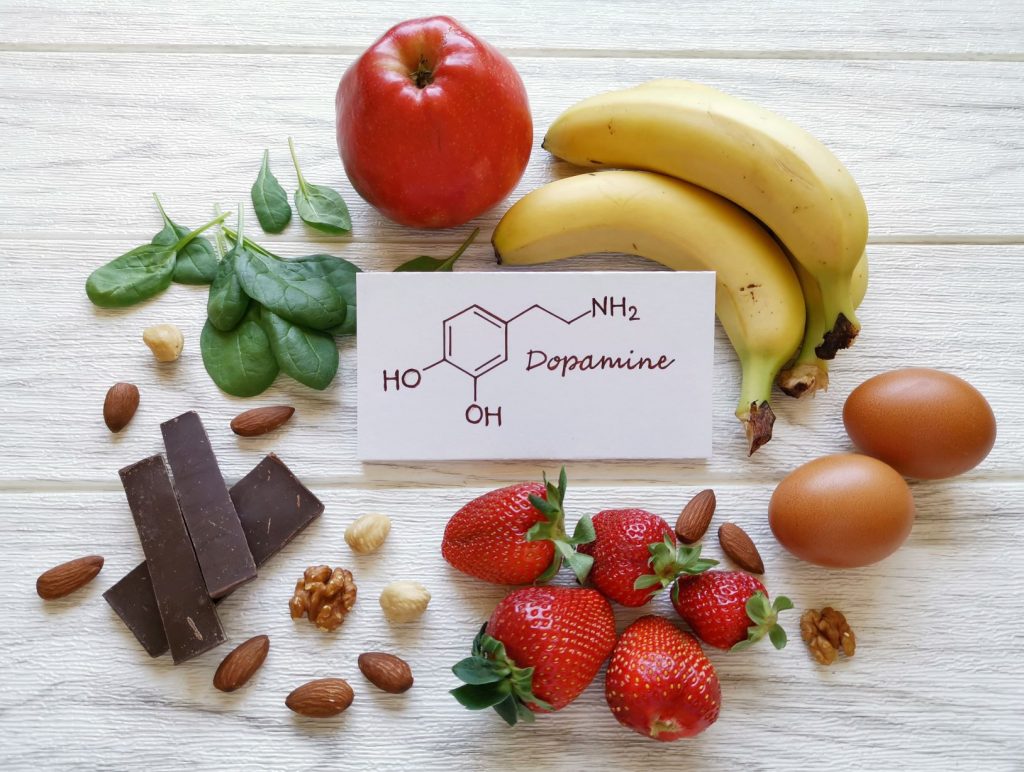
MOOD, STRESS, AND YOUR MICROBES
Several studies show that stressed rodents not only have increased stress hormones and stressed behaviors; but, they also have different gut microbes! This has also been studied, to a small extent, in people too.
One study showed that moms with high levels of stress hormones during pregnancy had infants with more of the “bad” gut microbes.
But, can it work the other way around? Can changing our gut microbes affect our moods and stress responses?
Studies of rodents that grow up without any gut microbes at all (in a “bacteria-free” environment) respond to stress more than mice with normal gut microbes. Then, when they’re given either a probiotic or gut microbes from non-stressed mice, their stress responses often go back to normal.
“Gut microbiota and probiotics alter behavior and brain neurochemistry.” That’s a pretty powerful statement. (Ait-Belgnaoui, et. al., 2012)
Many animal studies show positive effects on behavior when they get probiotic supplements. For example, after a probiotic, stressed rats had lower levels of both stress hormones and an inflammatory molecule associated with depression (“LPS” – lipopolysaccharide). Human studies show that after a few weeks of taking probiotic foods or supplements, healthy people have reduced stress hormones, feelings of stress, negative thoughts, and sad moods.
One fascinating study showed that when people took probiotics, brain MRI (magnetic resonance imaging) tests showed reduced brain activity for negative and aggressive thoughts!
There is some exciting research on the positive effect that probiotics can have on moods and stress. So, what can you do to nurture your own healthy gut microbes?.
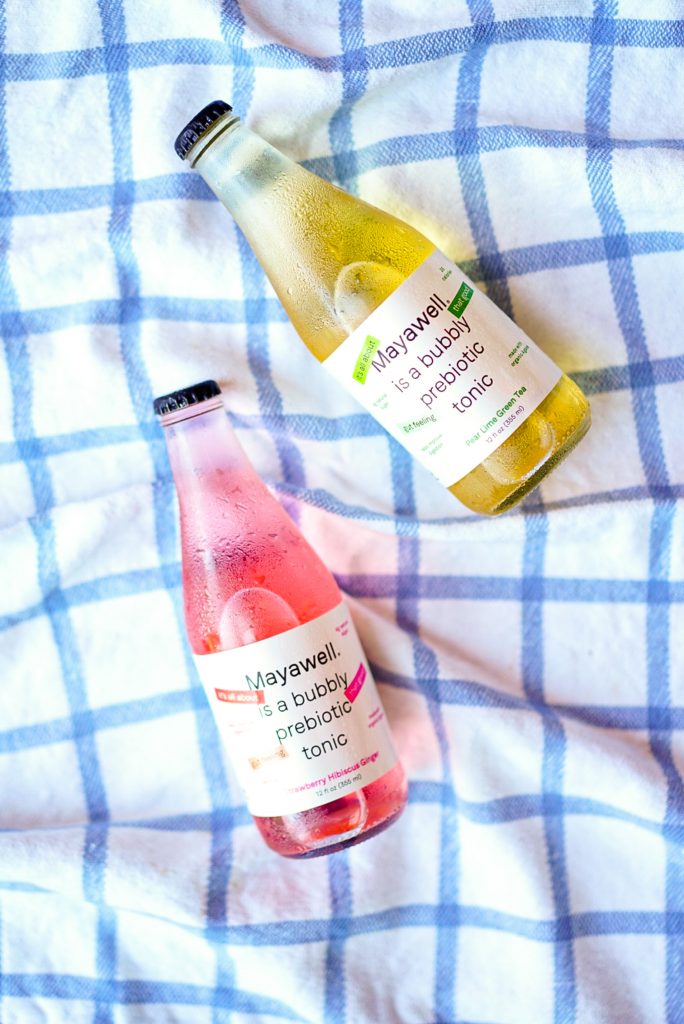
PREBIOTICS
We’ve already discussed the benefits of consuming probiotic-rich food. Once the gut microbes take up residence in our guts, we need to feed them!
PREbiotics are food for gut microbes and, when fermented in the gut, produce specific changes in bacterial composition or activity.
They’re your friendly gut microbes’ favorite delicacies so they’ll happily grow, and multiply.
Prebiotics are basically foods that contain fiber. Things like fruits, vegetables, nuts, and seeds. Even dark chocolate (preferably with at least 70% cocoa).
Foods that are particularly high in prebiotics include jicama, asparagus, avocado, whole grains, and allium vegetables like onions, garlic, leeks, and shallots.
Giving animals prebiotics has shown to reduce stress hormones, and anxiety-related behaviors. In people, studies show that taking psychobiotics along with prebiotics can improve both the microbes in our gut, as well as our mood.
The new research clearly supports our interest and maintenance of a healthy gut. Adding probiotic and prebiotic foods (or quality supplements) is a first step towards that goal.
Do remember, no two people have the same microbiome and your response is most important. If you feel bloated, anxious or gassy after adding fiber, probiotics, and prebiotic foods to your diet, it may be a sign your gut health needs further attention.
If that’s the case, please contact your health coach or provider for more individualized guidance. Our gut affects every aspect of our physical and emotional health.

